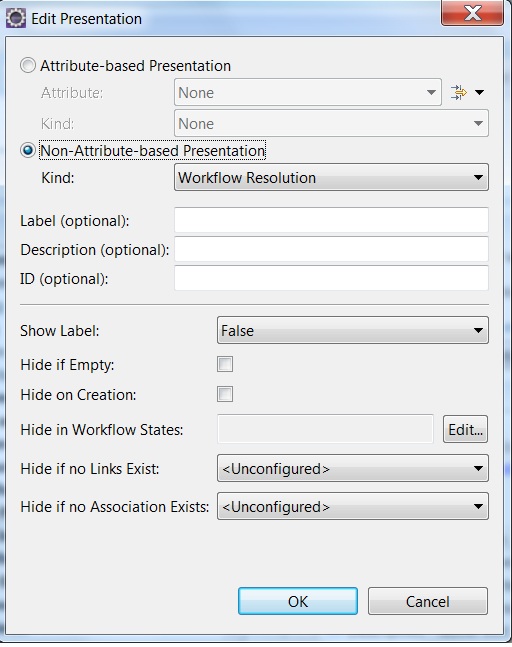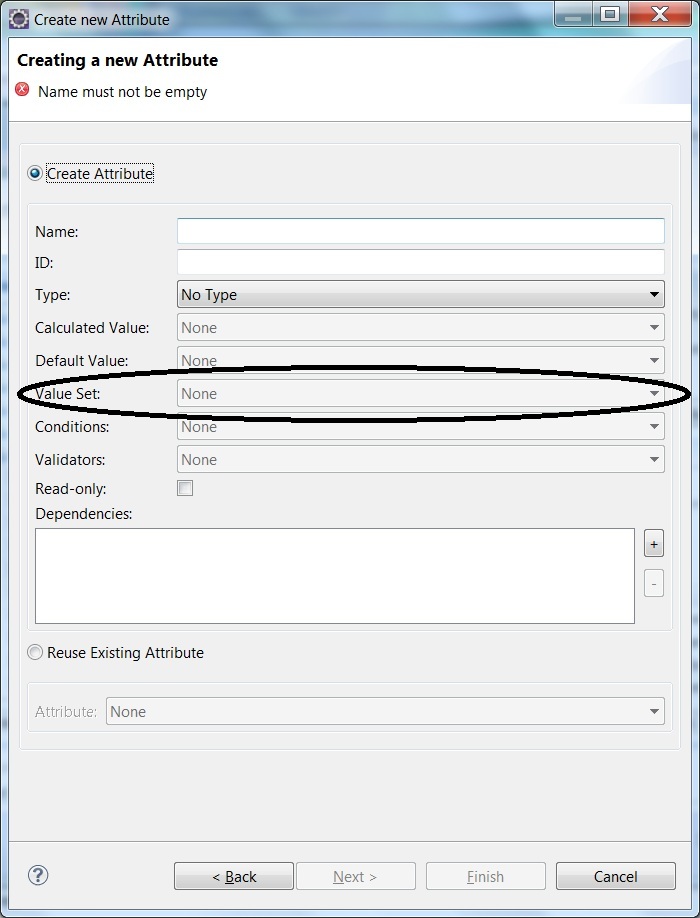Dynamic Resolutons
3 answers
Resolutions is a small string. You could try to use a JavaScript based Value Set. See https://jazz.net/library/article/1093 lab 5 for some training and additional information. You can add dependent attributes and use them for your calculation. You need probably to return the resolution values configured in the process. As the worksho will explain, you will have to code the values used for the value set into the script or the configuration, because you will not be able to access the process configuration details from inside the script.
Comments
Isn't Workflow Resolution a NON-Attribute type variable
so you can't attach a value script provider (cause thats in the Attribute layout panel, see last image)

attribute based layout

Sam,
you can set the value set on the attribute. However, at least a quick test, showed it would not pick up the value set. Bummer. I did only spend 5 minutes in it, but if the presentation has id hardwired, it might not work with a script.
what attribute? the resolution code is NOT an ATTRIBUTE...
I could create ANOTHER attribute to take the place of this variable. but that screws up a bunch of things in queries, etc
Ralp, did I miss something in your explanation? How did you get these two things to be defined as Attribute types?
Sam, there is an attribute on my defect for example (4.0.1) called resolution. See this image.

I am able to assign a JavaScript based value set (if one is defined the drop down becomes active). However, the java set is unfortunately not used, because, apparently the presentation does not respect it.
yeh I see that, but the presentation lists something else. "Workitem Resolution"
but you cannot change it to be Resolution.. so I think this is a 'special' attribute which behaves differently
queries support the 'Resolution' string.
comment 2: The resolution depends on the action selected, which is not even a work item attribute
we can observe that we can enable / disable / filter resolution based on action only (workflow implementation)
An alternate option to Javascript based calculated values would be to replace this resolution with a custom resolution enum attribute,
and implement a new dependent enum between custom resolution and custom attribute (assuming this is an enum).
Not tested, unknown impact.